The brothers John and Jesus Garcia Naveira emigrated from Betanzos (A Coruña) to Argentina in the 19th century to make a fortune, like so many other compatriots... but they succeeded. On his return to Spain in 1893 he financed charitable works in his native village:schools, fountains, asylums, hospitals,... But his most original work was a theme park, El Pasatiempo , perhaps the first theme park in Europe.
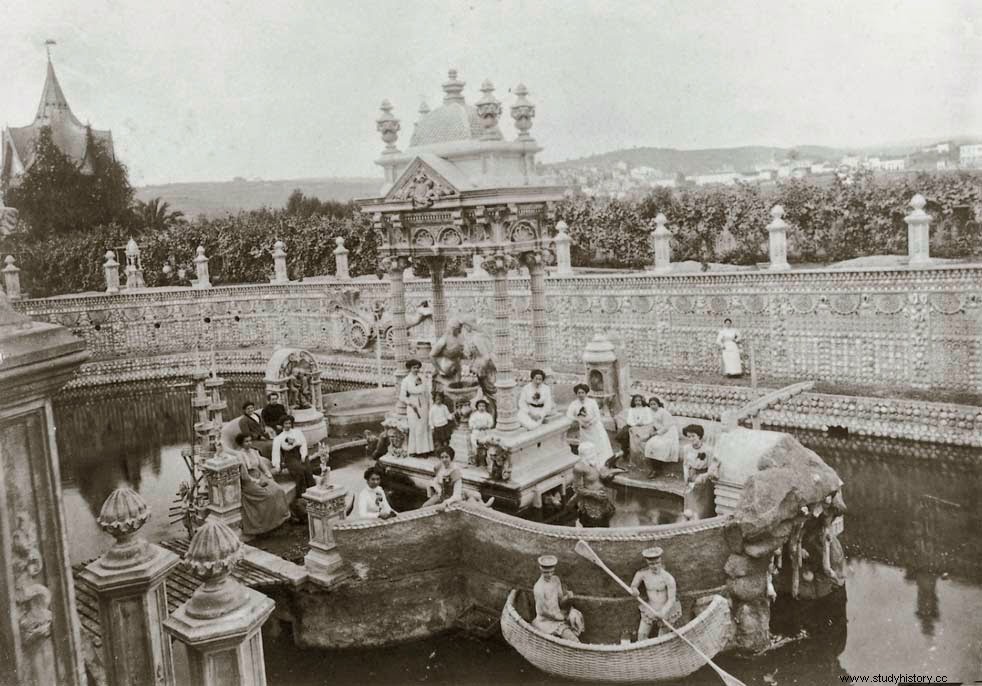
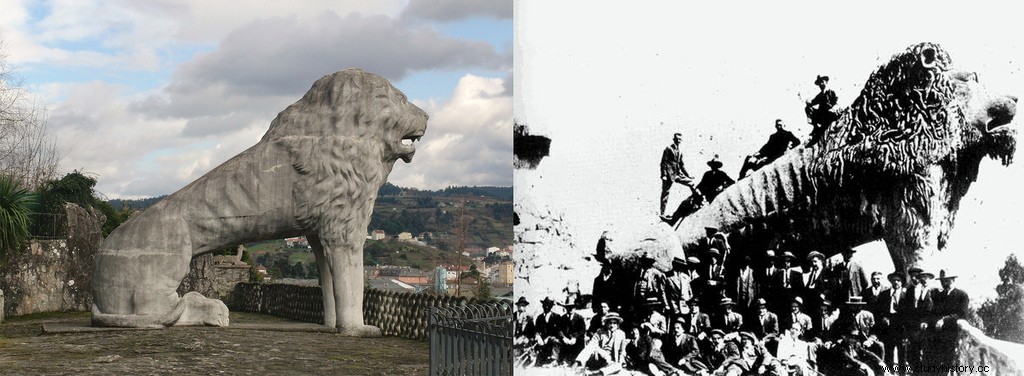
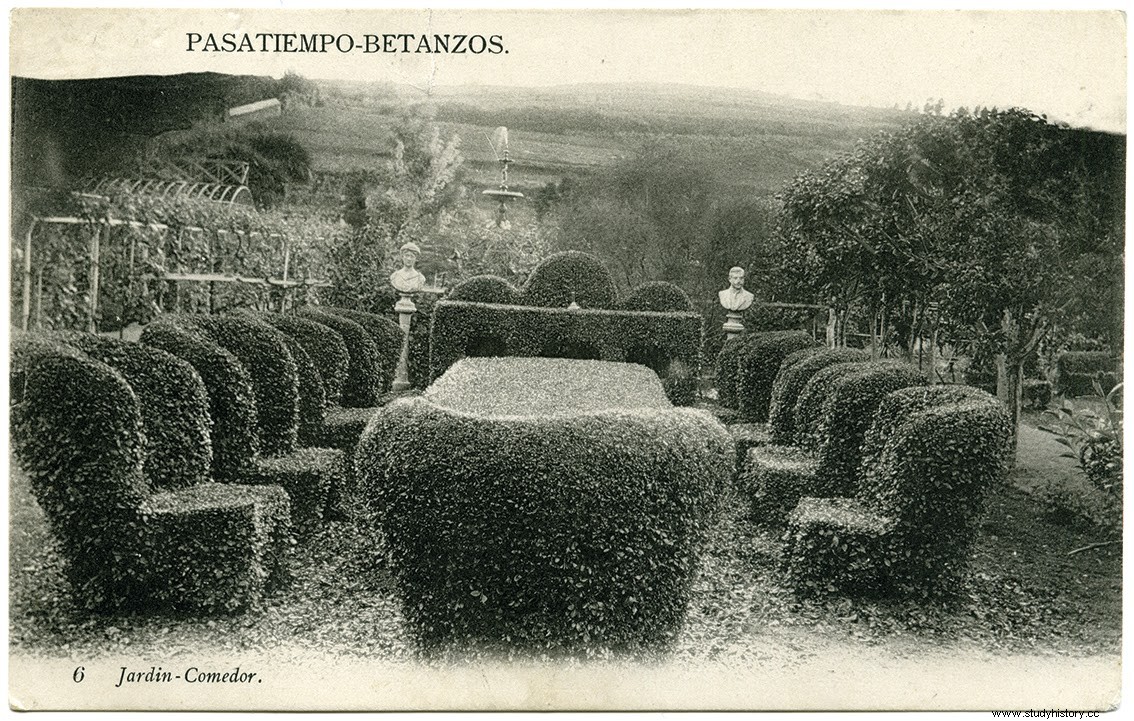
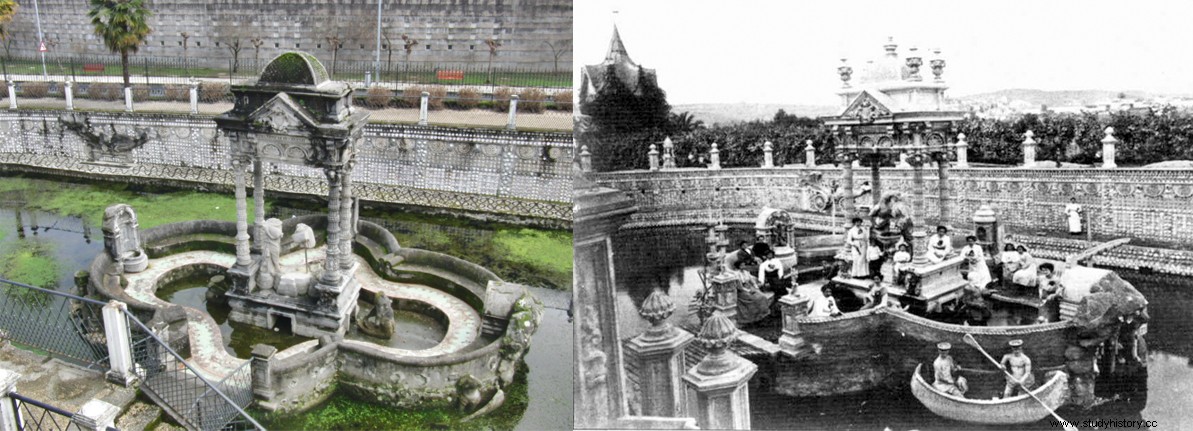
John Garcia , its promoter, wanted the people of his village to know the world. Before the hatching of mass media, one way of giving knowledge of what was happening across the planet was through the organization of universal exhibitions, in which replicas of famous monuments were displayed, technical inventions were disseminated and were made acquainted with the riches of the countries and colonies.
The Hobby was a sort of Universal Fair in miniature:it had sculptures, friezes and paintings of Roman emperors, popes, famous writers, maps, Egyptian pyramids, the Panama Canal, dinosaurs, the Great Wall of China, lions, hippos, shells, divers , a car and an airplane. It also had a botanical garden and a zoo. It was a wordless encyclopaedia, a complement to the schools founded by the emigrant brothers. The story told by the park blended utopian socialism and Christianity; in one inscription, today missing, it could read “Jesus Christ was the first socialist ”. But at the same time, Juan Garcia firmly believed in capitalism; eventually made his fortune in a market economy.
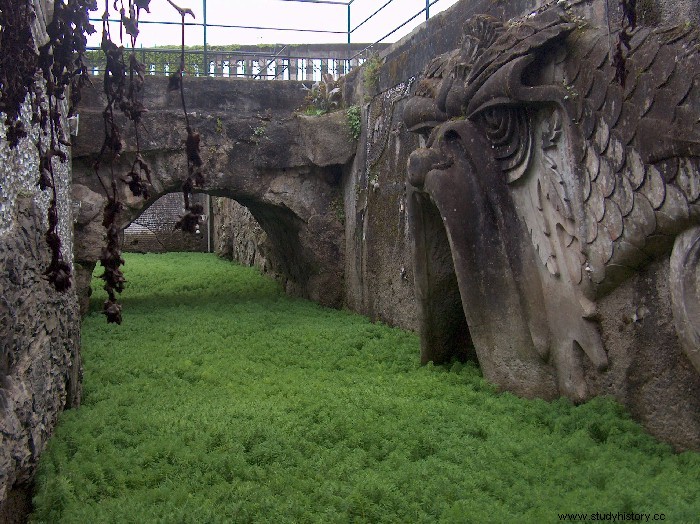


After the death of its promoter, in 1933, the park went into decline. But the definitive blow was dealt by the Civil War. From park of knowledge it passed to be prison camp. The place was transformed into an internment center for 1,800 people. It is an irony that one of the great Spanish utopians of the 20th century was imprisoned here:Vicente Ferrer , anarchist, Jesuit and founder of the NGO that has contributed to improving the lives of millions of people in India.
Another paradox:The ruins of El Pasatiempo, the utopian soil of an enlightened emigrant, are today cut in two by an avenue dedicated to Manuel Fraga Iribarne, minister of the Franco dictatorship.
Collaboration by Javier Ramos of Places with History
